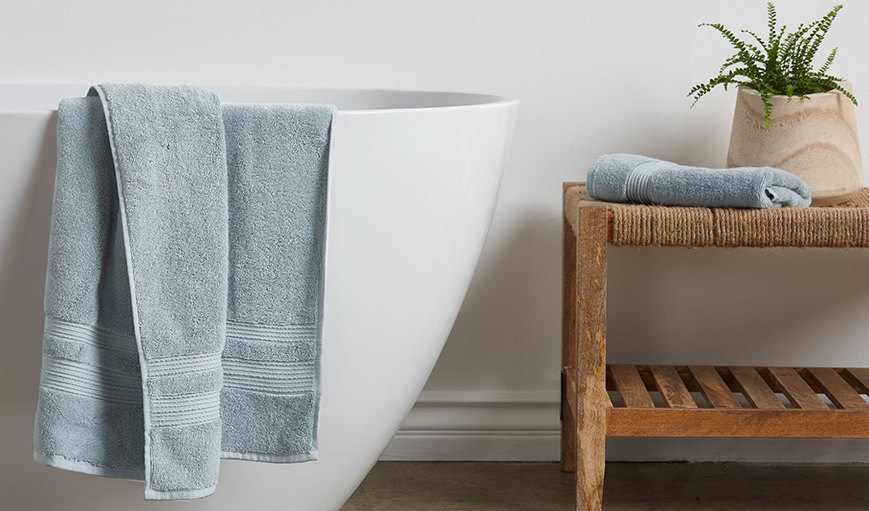How to Make Your Towels Last Longer
Towels and bath towels are a must for our daily life. They are in direct contact with our skin, so it is very important to do daily cleaning and maintenance. To help maximize the features and benefits of these home essentials, we've put together a guide on how to care for towels – from laundering to hanging – so you get the most out of bathing with the best.

What to Avoid?
To maintain the premium quality and performance of your towels, avoid fabric softeners and bleaching agents because they coat the natural fibers. Also, keep your towels away from household cleaners and personal care products that contain benzoyl peroxide or alpha hydroxy acids because these may cause discoloration.
Do not wash your towels with items that could pull or snag the fabric. These include clothing with zippers, hooks or Velcro. For best results, dedicate a load of wash to towels only. Pro tip: In the event of a snagged loop on your towel, resist the urge to pull it. Simply cut the loop with scissors.
Washing
We recommend washing after every third use. To launder, use cold water and just a small amount of Laundry Detergent, as soap build up inhibits drying performance. Prevent pilling – which occurs when long fibers rub up against short fibers – by dedicating your load of wash solely to your bath items and washing different color towels separately.
Drying
Before drying, give your towels a shake to fluff up the fabric. Tumble dry on low (high heat damages the fabric) and remove promptly, because over-drying creates brittle fibers. If you prefer the fresh scent of air-dried linens, try these steps to avoid a stiff feeling: After shaking, hang one short end over the clothesline and clip. Remove the towel from the clothesline when just slightly damp and insert it into the dryer for a final fluff. Always make sure your towels are completely dry before folding and storing.
Folding
For wrinkle-free towels that evoke hotel suite vibes, we recommend the following method for folding: First, lay the towel flat on a surface and smooth out any wrinkles. Then, starting with the long side of the towel, fold the length in thirds. Grasp the short side and fold the towel in half. Repeat this step. You should be left with a neat square which will hang beautifully over a rod – showcasing its dobby design – or will look equally neat and tidy stacked on a shelf.
If you prefer rolled towels, stored on a shelf or in a basket, we recommend the following method: Fold the towel in half so that it makes a square. Next, fold one of the corners into the center of the square. Repeat this step with the opposite corner. Flip the towel so that the two folded corners are face down. Finish by tightly rolling from one end to the other.
Storing
When organizing your linen closet, less is more. Overloaded shelves can cause wrinkling, unpleasant odors or even mildew. To keep this space smelling fresh, we like to tuck a bag of lavender within the folds of our towels. Another pro tip: Avoid overusing one set of towels by storing the freshly laundered ones at the bottom of the stack in your linen closet. This way, everything in the closet gets regular use.
Hanging
Between uses, hang your towel to dry. Never pile damp towels on the floor or into a hamper, as this will enable growth of mildew and mold. Instead, drape the towel over a towel bar, which allows it to hang flat and air dry most quickly. When a towel is hung on a hook, moisture gets trapped between the folds. Trapped moisture = mildew and bacteria. We're guessing you don't want those in your bathroom.
Replacing
The towel is made of fiber fabric, which is organic and has a limited life. Subject to daily use and frequent washing, it's inevitable that they will eventually start looking tired. Plan accordingly: Replace your bath linens about every 3 months.
